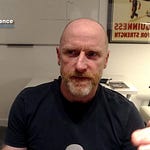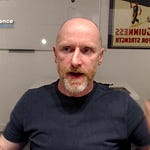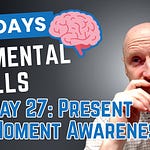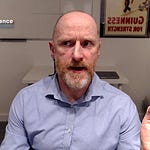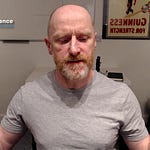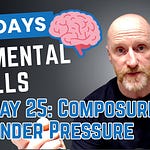Most people you meet and know are caught in linear time consciousness - the idea that we live along a line from birth to death and everything that happens is based on cause and effect. Someone must have made that thing happen; someone did something. And if that thing happened to me, then there must be a reason for it, either out there in the world or closer to home.
We think in terms of what happened yesterday or ten minutes ago and what will happen tomorrow. We regret or wallow in our past experiences, and we are pessimistic or optimistic about tomorrow. Regardless of our future outcome orientation, linear time is fundamental to our experience.
But what if time is simply a social convention?
Instead of being a fundamental aspect of reality, time merely allows us to count abstractions of reality like a ruler or weighing scales. In his 1979 book Disturbing The Universe, Freeman Dyson quotes Einstein: “People like us, who believe in physics, know that the distinction between past, present and future is only a stubbornly persistent illusion.
The point here is that stress, anxiety, and even depression seem to be very closely related to our perception of and belief in time as a fundamental aspect of reality. Without time, there is no anxiety because tomorrow (and 10 minutes from now) doesn’t and will never exist. When it’s tomorrow, it’s now. The clock ticks on the wall, it gets light and it gets dark, and it’s still now.
Now is the only moment we have, and when we realise this – I mean, deeply recognise this truth – anxiety about what will happen tomorrow, or how we will be perceived by the audience, our clients, or our bosses, evaporates.
Controlling the controllable is recognising that all imaginations of disaster, all catastrophising about what will happen next is a waste of energy. It is a state of myopic obsession with thoughts. It is being in our heads rather than being in the game, in the moment. We are elsewhere and without presence.
The concept of “controlling the controllable” refers to focusing our energy and efforts on aspects of a situation that are within our control rather than worrying about elements that are not. This concept is grounded in various psychological theories and practices, particularly within stress management, cognitive-behavioural therapy (CBT), and resilience building.
The idea is closely related to the locus of control concept, introduced by Julian Rotter in 1954. Locus of control refers to the degree to which a person believes that they have power and influence over the outcomes of their lives. People with an internal locus of control believe they have a significant role in shaping their life outcomes. They have a sense of autonomy and personal choice in what happens to them. They take responsibility and exercise choice regardless of the moment-to-moment outcome.
Those with an external locus of control attribute external forces such as fate, luck, or other people’s actions to the direction of their lives. This is not an either-or state, however (internal or external locus of control), but rather the degree to which we internally or externally attribute causes of personal life conditions.
“Controlling the controllable” aligns with an internal locus of control, as it encourages us to take personal responsibility for our actions and decisions. By focusing on what we can control, we may enhance our sense of agency and reduce feelings of helplessness and victimhood, which are often linked to stress, anxiety and depression (Seligman, 1975).
This Sunday at 9 pm, I’m holding a FREE 30-minute workshop on Controlling The Controllable. You can book your place here.
Slán for now, Larry




